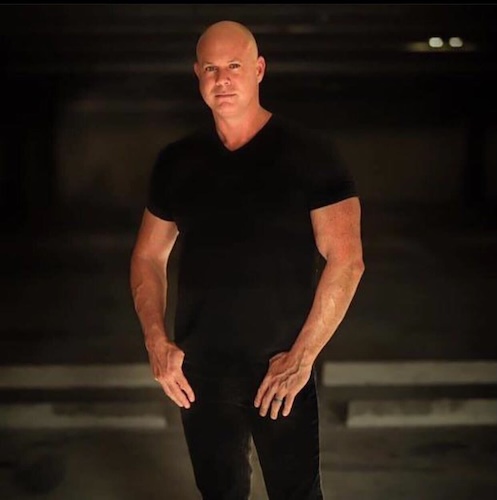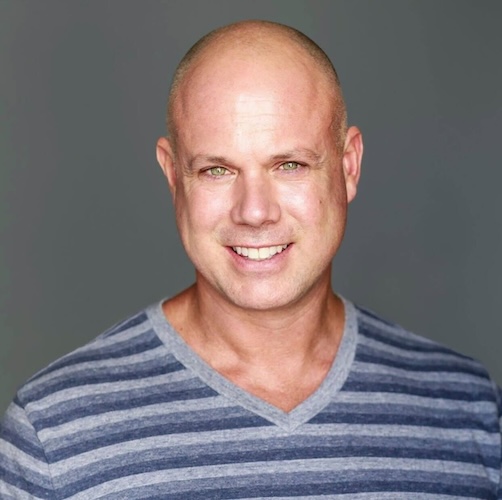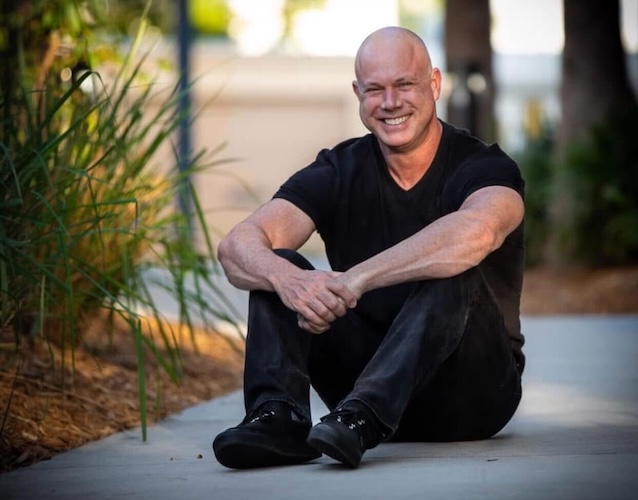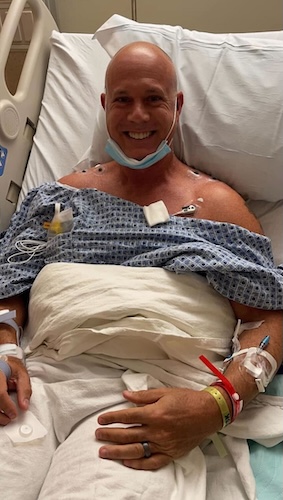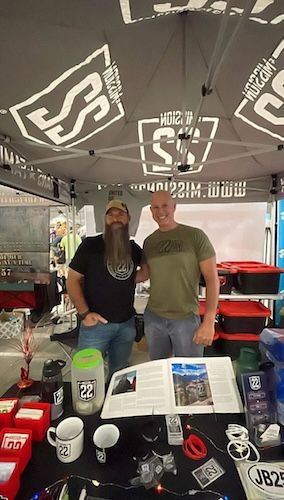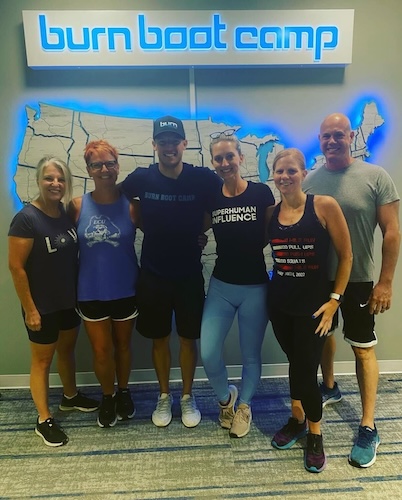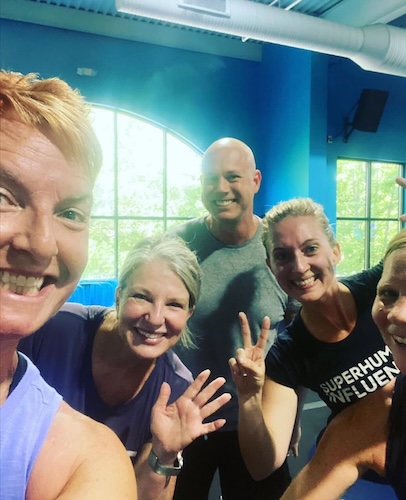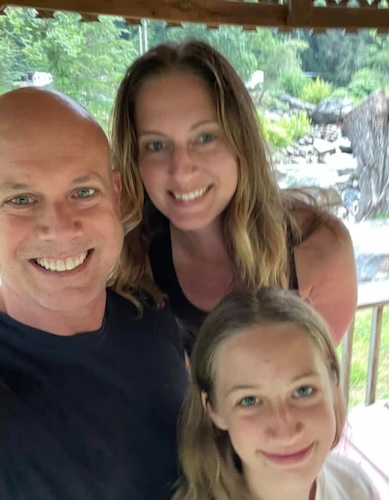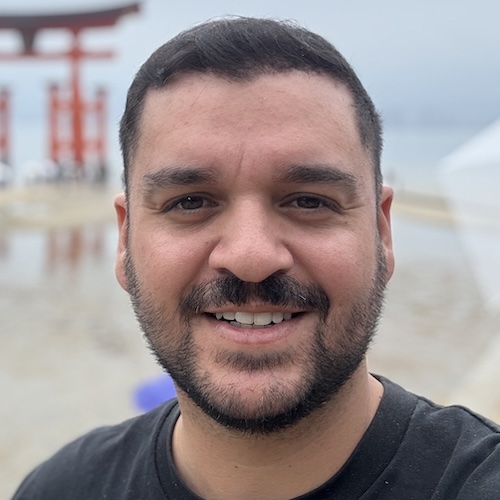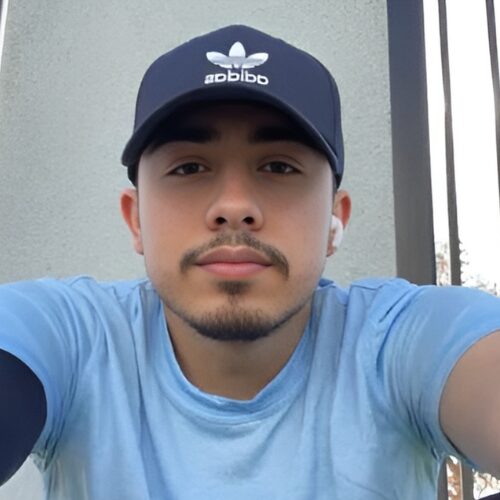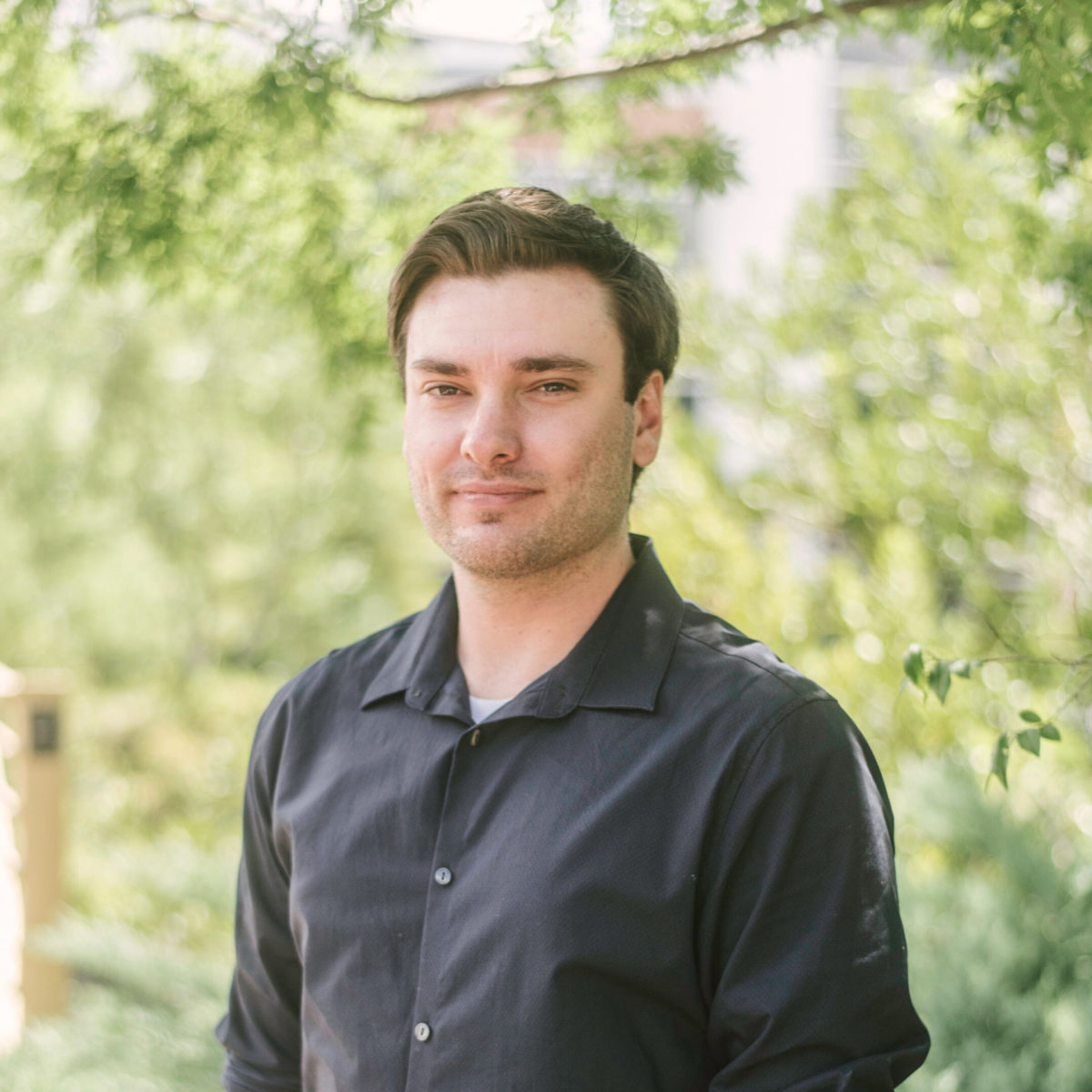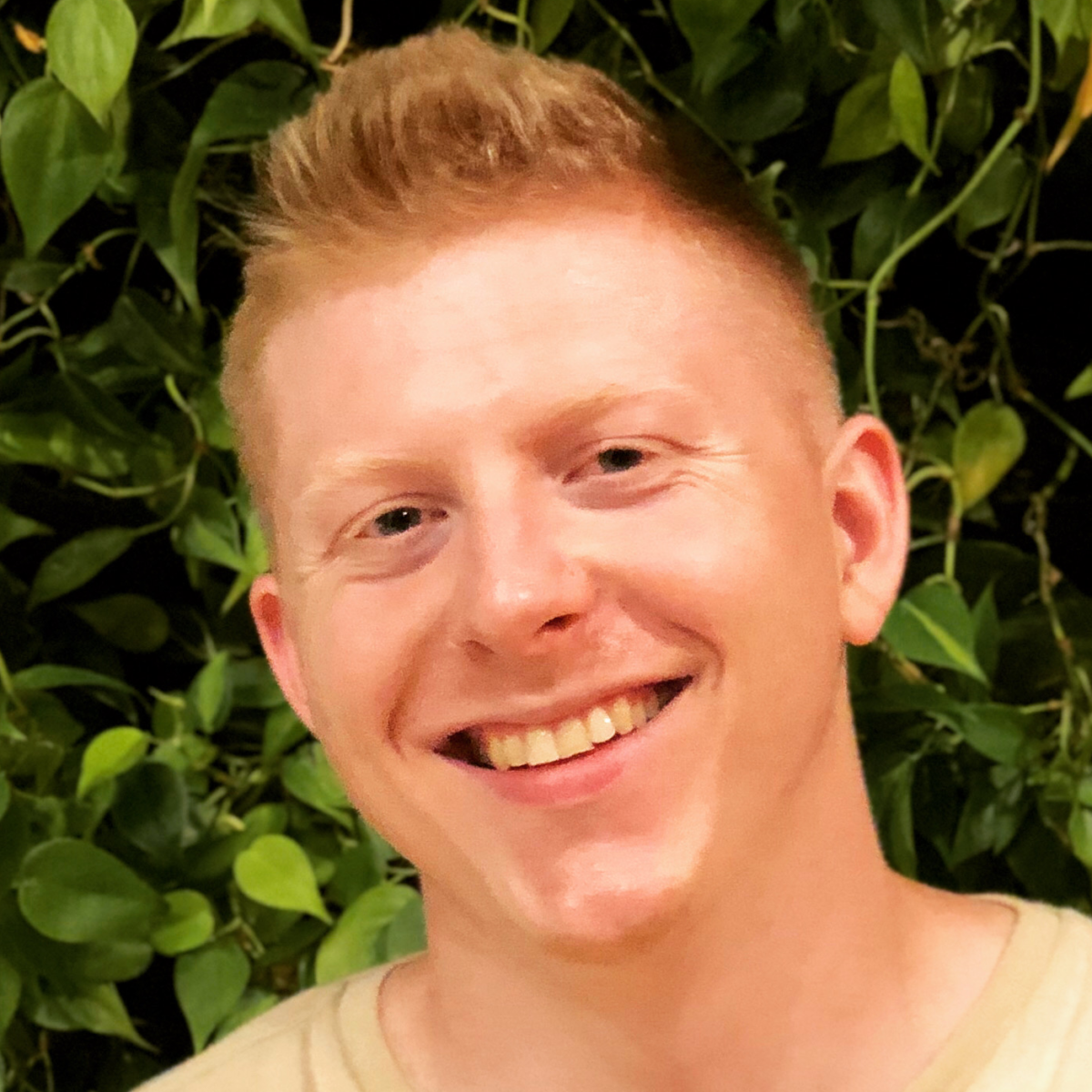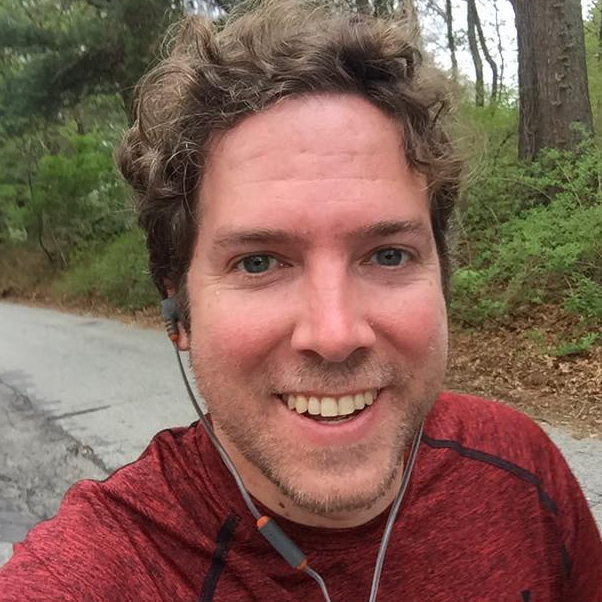A Trainer’s Strength Tested: Shawn’s Stage 3C Testicular Cancer Journey
At first, Shawn and his doctor were sure he had suffered a workout injury, not testicular cancer. As a trainer who spent his days in the gym, soreness and a little swelling seemed like the kind of thing that could happen with the job. His doctor agreed, saying, “Oh, you’re fine. It’s probably something you did [working out],” and scheduled what was supposed to be a simple, routine surgery.
But when Shawn woke up, everything had changed. The procedure revealed both seminoma and non-seminoma types of testicular cancer. The diagnosis came just a week after he’d finished reading Lance Armstrong’s book about surviving the same disease.
Interviewed by: Nikki Murphy
Edited by: Chris Sanchez & Jeff Forslund
Doctors initially thought Shawn had a condition called varicocele and hydrocele, brought on by his role as a trainer and suggested minor surgery. It was during the procedure to fix things when his surgeon was shocked to discover that he had testicular cancer. After being told, Shawn remained calm and focused on his next steps. He underwent an orchiectomy to remove the cancerous testicle and researched the best treatment options. Despite setbacks with a local doctor, he found a supportive medical team in Indiana. The doctor warned him about the aggressive treatment’s severity, but Shawn accepted the challenge, beginning chemotherapy soon after.
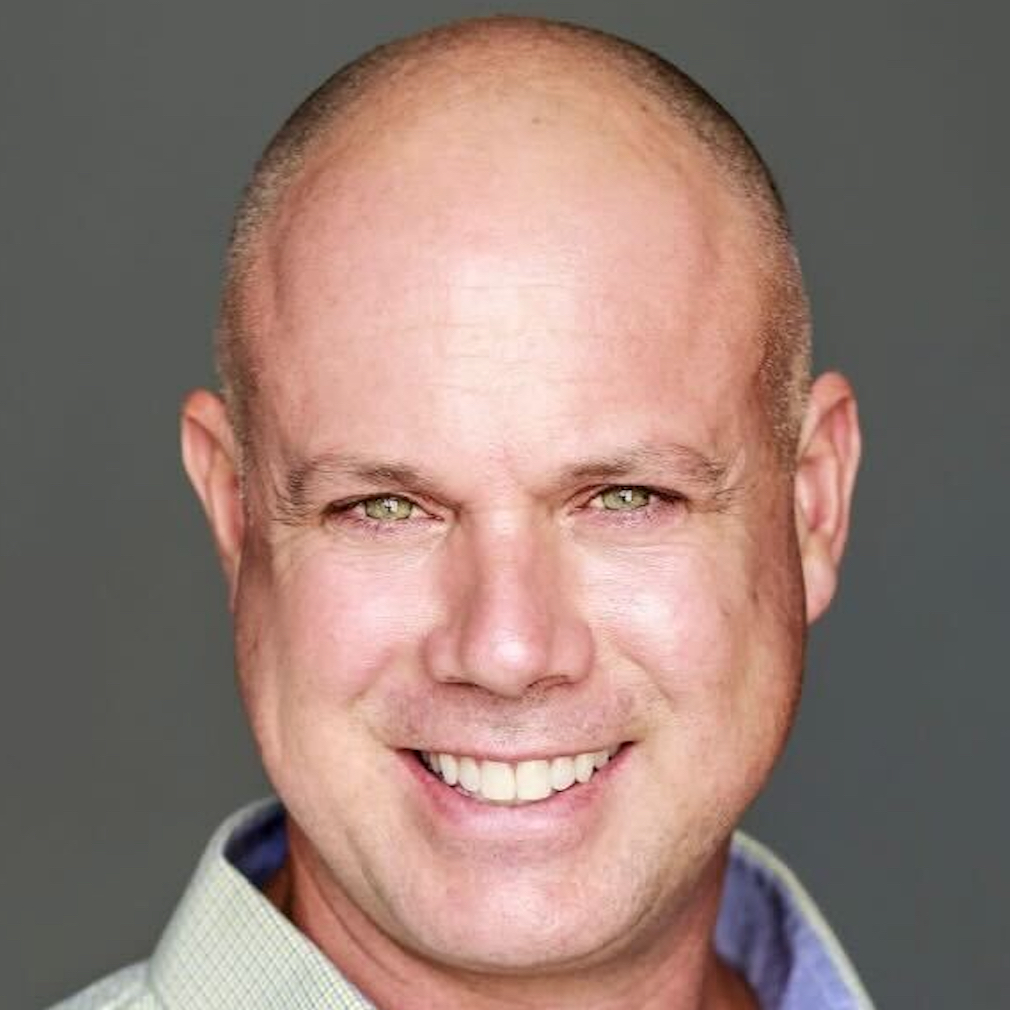
At UNC Medical Center, Shawn underwent intensive chemotherapy. He balanced treatment with work, receiving infusions for five consecutive days each week. Despite the hardships, he maintained a positive outlook. Shawn’s connections with medical professionals, many of whom were his clients, provided additional support.
Throughout treatment for his testicular cancer, Shawn faced physical and emotional challenges. He lost 45 pounds and experienced changes in his appearance and senses. Despite these struggles, he found ways to remain mentally strong, employing visualization techniques and drawing motivation from supportive relationships. His network, including fellow gym members, attempted to provide normalcy, though their visits sometimes added stress.
The impact of cancer extended beyond physical health. Shawn’s marriage became a casualty of his cancer. Thankfully, his mother offered consistent support. Reflecting on his journey, Shawn emphasized that cancer itself is often a manifestation of internal imbalances. He consequently advocates addressing stress and having a positive attitude as essential components in combating disease.
After 4 months of treatment, Shawn entered remission, though the fear of relapse remained. Ongoing check-ups were daunting, but he gradually adapted to the uncertainty.
In sharing his testicular cancer story, Shawn emphasizes the importance of not delaying treatments until desperate. He accordingly encourages proactive health management and emphasizes the power of a positive mindset in helping deal with life’s challenges. Furthermore, he advises discovering one’s purpose and living in the present, as life can bring unexpected changes.
Watch Shawn’s video and read his transcript below to:
- Discover how a simple gym-related check-up turned into a shocking cancer diagnosis
- Explore Shawn’s candid and inspiring journey through testicular cancer treatment.
- Find out how Pac-Man visualisations and positive thinking helped him fight back
- Learn what it’s really like to get the “all clear” and live with the long-term effects
- Read Shawn’s message about purpose, survival, and refusing to wait for life to happen.
- Name:
- Shawn H.
- Diagnosis:
- Testicular Cancer (Seminoma and Non-Seminoma)
- Staging:
- Stage 3C
- Age at Diagnosis:
- 31
- Symptoms:
- Discomfort in testicular area
- Treatment:
- Surgery (orchiectomy)
- Chemotherapy
This interview has been edited for clarity and length. This is not medical advice. Please consult with your healthcare provider to make informed treatment decisions.
The views and opinions expressed in this interview do not necessarily reflect those of The Patient Story.
My name is Shawn
I was diagnosed with testicular cancer a week after reading Lance Armstrong’s book. I found out I had non-seminoma and seminoma, both forms of testicular cancer, which was really interesting.
I thought my symptoms were from excessive exercise
When you exercise, a lot of times there’s a thing called a varicocele or a hydrocele, where maybe you had some impact on the testicle area from working out. So the doctor went, “Oh, you’re fine. It’s probably something you did. We’ll do a routine surgery.”
He did an ultrasound and said, “Okay, you have a varicella, which means there’s not as much blood flow to one side. And then the hydrocele is like water goes in, but fluid doesn’t come out. So we just make a slit. We release it. Don’t worry about it. You’ll be fine.” Then it started getting larger. He goes, “Okay, let’s just take care of this when you have time.” And Christmas time is a little slow for the gym business, so I had it set up for a routine surgery.
The day of surgery
They were going to do the hydrocele and the varicella together, for 30 to 40 minutes. So I went in, and when I was under, the entire staff froze because they saw it was cancer. The doctor had no idea that that’s what it was going to be.
They had to step out of the operating room for a minute and collect themselves. And I didn’t know anything because I was on the surgical table. So afterwards, the doctor wakes me up and he goes, “I’ve got something to tell you.” And he told me the diagnosis.
And I said, “What do we do now?” And he goes, “Did you hear what I said?” I’m like, “Yeah, but I can’t do anything about this. What do we do moving forward?” And he’s like, “Wow. Most people don’t react this way.” I’m like, “What do you want me to do about it? You took care of what you could take care of, right? You did your job. Great. Now let’s go.”
And that’s how I’ve always been. Because I can’t sit there and be like, “Oh my God.” I know why we need to take a course of action. It’s time to go. And at that point, they didn’t realize what stage it was.
What happened after surgery
So, after the staging, I needed to have surgery, an orchiectomy. We did research to figure out the best person to tackle this, because I know one place in Texas and Indiana, two of the highest-ranking places for this. And the thing that’s different with me is that my clients were a lot of doctors. So the head of UNC Hospital and their medical school, the head of urology, and the head of cancer were clients of mine.
I said, “I’m going to this well-regarded doctor, and I’ll bring back the protocol.” The doctor that they had me set up with got really upset with me. And I’m like, “Listen, I’m already under stress. Why do I need this?” So she actually got fired. And then I went up to Indiana and met with another doctor. He goes, “I’m actually going to probably almost put you near death because the treatment is really severe.” I’m like, “Okay.” So they created the protocol and sent me home. A week later, I started chemotherapy.
My testicular cancer treatment plan
I got to UNC hospital. I asked, ”How long is this treatment going to take?” They’re like, “If we run you at 165 milliliters, you’re going to be here for 16, 18 hours. We’re going to jump you up to 650. You’ll get out of here in 6 to 8 hours.”
And so I would go to work and then come in for an infusion. The infusion people didn’t realize it was five days in a row for eight hours. So, pretty much, it’s one of the highest runs of drugs into your system to combat this cancer. So for the first month, I could go to work, and then they’re like, “Listen, you’ve got to come in early because we can’t stay here all night with you.” I was an outpatient. I lived down the street, so I would come in early. And the thing is, being at the state hospital, they had people. This just blows my mind. From prison in a corner, strapped to the table with cuffs. I’m going. What do you think they’re going to do? Run! Like, come on, man, we’re here for treatment. And people would ask me all the time, Why do you have so many doctors? I’m like, they’re my clients.
So all the people from the hospital would come in and show up, and they’re like, “Wow, you don’t look like you have cancer.” I’m like, “What does a cancer patient look like?” They’re like, “Well, how’d you get it?” I’m like, “I don’t know, I didn’t order it on eBay or Amazon. It is what it is.” And the treatment lasted for four months.
I lost 45 pounds during that time. My hair all fell out. This isn’t from chemo, so I knew what my head looked like. So when it started thinning, I shaved it off. And I went for a walk one day, and no one was home. And I’m like, “Who am I? I gotta turn around.” I didn’t think I was going to make it home because it affected my lung capacity so much. And I think that’s the thing, you’re all right one day, and the next day you’re like, “Oof, I need time to relax.” And being younger, I was 31 or 32 at the time when people would come over, it was almost like they felt they were going to catch it. They didn’t know how to react or talk to me, and I remember all the guys and some girls from the gym came over. And I’m sitting there, and they’re all sitting around like, this is awkward as heck.
Like, what am I supposed to say? And they’re all trying to ask weird questions. So I’m talking and talking. And at one point, they all leave. And I just went and got sick in the bathroom because of the stress of trying to look normal and feel normal. And there are certain days that they’d get me on drugs to produce more red blood cells because my white blood cell count was down. And that was ten times worse than the chemotherapy drugs because of how achy it made me feel. And the funny thing was, this kid I was working with, he was ten years old, and he was going through cancer treatment at the time. And I’m like, “Wait a minute, why does he get to take anti-nausea meds?” And there were other things I couldn’t do either. “Don’t take supplements because they’re going to screw up your blood work.” I was just blown away by all the things they told me not to do. I’m glad they’ve completely taken a different approach to treatments.
The side effects I experienced
At first, it was weird. You get really tired, and it hits you all of a sudden, like, after treatment, I’m not doing anything. About 24 hours later, I was fine because I took a lot of different supplements to get the drugs out of my system. So my immune system would build itself up because, again, those drugs only last a certain amount of time. You want to get them out. Drinking a lot of water was helpful. Taking different supplements helped flush it out of my system, because it puts a lot of stress on your kidneys and liver. So the weird thing is, because I didn’t do a port and I don’t know why, they had it in my arm, and they would just tape it up every week, and they’d switch arms. My veins started to harden in my arm, and it hurt so bad. And basically, I don’t have a bicep vein because it just flattened out and disappeared. And the weird thing was, when they would try to get my veins, my veins would move. They’re like, “Yeah, we’d go near you with a needle and your vein would move to get out of the way.” It didn’t want to be injected after a certain amount of time.
Another effect was that I couldn’t sleep. It was weird. And I had a table in front of me, and I would have different kinds of water and juices at different temperatures. Sometimes I would drink, and they would taste all funky and weird. My taste buds changed drastically the entire time. My skin got almost a gray look to it, and I smelled like chemicals. And once in a while, I would get nausea. But they gave me these anti-nausea pills, which actually knocked me out. I didn’t take any pain meds either. I’m just against as many drugs as I need to take.
How I managed my mental health
I did a lot of visualization work. I picked Pac-Man, which would go in and gobble up the cancer, and then I’d go to the bathroom. I would get rid of it. I did a lot of work motivating athletes. The most interesting thing was I was out at a place getting lunch, and this woman walks up to me and she goes, “Hey, I haven’t seen you in a while. What’s been going on?” I go, “Yeah, I’m going through cancer.” She goes, “When you’re done, I want to train with you.” So the motivation to get back to helping people was amazing. This person, after we trained, lost like 30 pounds, went on to win a gold medal in the Olympics in women’s soccer, and she was one of their outstanding players, and that was the motivation that I had that people still needed what I did when I was in chemotherapy. I would be listening to different things, and there would be motivational things on YouTube. Certain sayings I would use. And again, remember, there are points where you’re just like, “Why me?” And you just have to fall apart emotionally and let that out. I remember asking my dad to shave my head. He goes, “Why do you want me to do it?” And the interesting part is that I felt connected to him to do this. And I was married at the time. Soon after, I got divorced because my wife couldn’t deal with it.
She would just go do her own thing, and she would talk to me like nothing was happening or going on. But my mom was always there. And it was comforting to have someone there. And that’s the thing is the ex, being my wife at the time, would go out of town to do her training, and I’d have a buddy stay with me because I needed someone to sit with me. I couldn’t be by myself, because all kinds of crazy thoughts would go through my head. Because I wasn’t sleeping normally. We had animals. I needed help, someone to help me take them out. And again, it’s always, “What did I do to deserve this?” And then you think about the reason cancer shows up. And this is what I explain to people that I work with who’ve gone through cancer. Cancer is you. It’s not something outside of you. So if your body created it, that means there’s an imbalance. And the imbalance can come from internal stress. It can come from external factors, too, like chemicals and all kinds of other things. If you can create it, you can get rid of it. And people are like, “Well, that’s crazy. I’m like, “No, it doesn’t have a mind of its own. You have a say in how you boost your immune system with the hormones that are in it, and in how you feel.”
And look at the situation. This is based on science. This is not just something. No quantum physics energy. The more positive you are, you think about it, the more you surround yourself with positive things, the better food you take in. It gives you an advantage over just not caring.
The day I got clear scans
I was declared in remission four months after I began my treatment. They took a blood test. They’re like, you have no more markers. We did a CT scan. There’s no more cancer there. Your lymph nodes, like they said, were completely clear. You’re good to go. And I’m like, “What does that mean? Because what is remission? That means it’s not active to me. Is it there?” “We don’t know.” And then I’m like, okay, what’s the follow-up? And I think it was every month in the beginning. Then it was every three months, then every six months, then once a year for five years. I’ll tell you what, man, that first time going back is scary as hell because you don’t know. It was the most freaky, uncomfortable place I’ve ever been in my life because I didn’t want to be back there.
And you don’t know when you’re going through this. Is it going to come back? They don’t know. And people, you know, get out of remission all the time. Why? No one knows. I mean, we may have some thoughts on that, but it’s a scary thing, man. Then you go back three months, then you’re fine. Then the one year is the scary one because you get the five years, you’re like, oh, you’re free. I’m like, what does that mean? And then what did the drugs do later on to cause other issues? And the reason I’m bringing that up is I had a heart attack three years ago. I eat clean, and I exercise all the time. Could it have been a cause of the cancer? “We don’t know, but there’s no family history.” I just went to the hospital feeling okay, but this has happened. Had a knee blowout and a race. Had to have a hip replaced like and then most recently with pulmonary embolisms. And there’s no history of any of this. And like, what does a drug do? Short term, it saves your life. Okay. What does it do long term? No one knows. So again, you just hope for the best and lead as healthy a life as possible.
Why I share my testicular cancer story
I’ve just watched too many people wait too long to incorporate certain modalities into their treatment, because they’re exceptionally desperate. They would go, “Okay, I’m going to do this treatment schedule.” I’m like, great, what about these other things? “Oh no, my this or this person said, don’t do that.” And they’re afraid of what their family is going to say. If they do something, I’ll quote an alternative. And that’s why I got into the mindset piece, because we all have the same amount of time. We all have the same resources. It’s why one person or group of people is doing something and another isn’t. But when you have the treatment, stop the quote. Conventional treatments aren’t working. You’ve been denied all the testing, or how about a clinical trial? And what level are you at? And then, like, people just have so much hope for a test or a clinical trial that they just. That’s what that’s what’s going to save me. No. You’re going to save yourself.
What I want others to know
We’ve all been put here for a purpose, and if you don’t know what your purpose is, go find it now because you do not know how long you have. People all have this notion that they’re going to grow up and enjoy life and play sports and maybe get married. Maybe have a family, grow old, retire, and enjoy their golden years. Sorry, that’s a fairy tale. There’s a ton of stuff that happens in between there. There’s a ton of amazing things. There are a ton of things that are going to scare the hell out of you, that are going to be disappointing. There’s going to be death. There’s going to be pain. There’s going to be injury, both mental and physical. Live in the present moment. Don’t wait to have the conversation. That’s important. Don’t wait to call that best friend or that loved one and say, “Hey, I just want to know how you’re doing. We should get together.” Because one day you’re going to get a call that goes, “Oh, that person’s not around anymore.” Or they went through this thing and got diagnosed with cancer. And they do these amazing things in life, why weren’t you doing that beforehand? You don’t need to go through a struggle to have a story. Just serve people at your highest level and learn as much as you possibly can about the things you’re interested in, and never stop being a better version of yourself. We’re never going to be perfect, but that’s not life. It’s about enjoying the things you screwed up and sharing those so someone else doesn’t make those mistakes because there’s no right or wrong way of doing it. It’s just your way.

Inspired by Shawn's story?
Share your story, too!
More Testicular Cancer Stories
Matt B., Testicular Cancer (Embryonal Carcinoma, Metastatic)
Symptoms: Severe lower back pain, loss of sensation in left leg, dizziness, fatigue, night sweats, heart complications
Treatments: Surgeries (retroperitoneal lymph node dissection or RPLND, orchiectomy, liver resection, hernia repair surgery), chemotherapy
Josh T., Testicular Cancer, Stage 3A
Symptoms: Pain in his chest, lower back, and abdomen; shortness of breath, especially during exercise; mass found on one testicle
Treatment: Chemotherapy
Steven C., Testicular Cancer (Non-Seminoma), Stage 2B
Symptoms: Enlarged left testicle, tenderness in left testicle, lump in back (retroperitoneum)
Treatments: Surgery (orchiectomy and retroperitoneal lymph node dissection), chemotherapy
Matthew O., Testicular Cancer (Non-Seminoma), Stage 3C
Symptoms: Fatigue, one swollen testicle
Treatments: Chemotherapy, surgery
- 1
- 2
Rick H., Testicular Cancer (Seminoma), Stage 1
Symptoms: Noticed one testicle larger than the other, dull pain
Treatments: Orchiectomy (surgical removal of one testicle), chemotherapy

